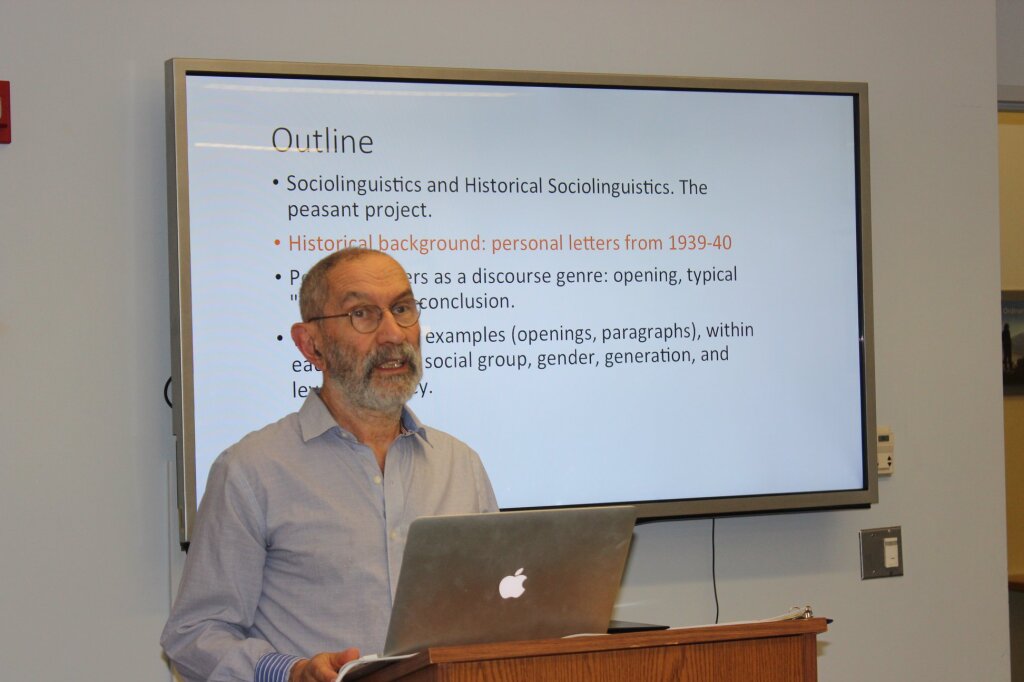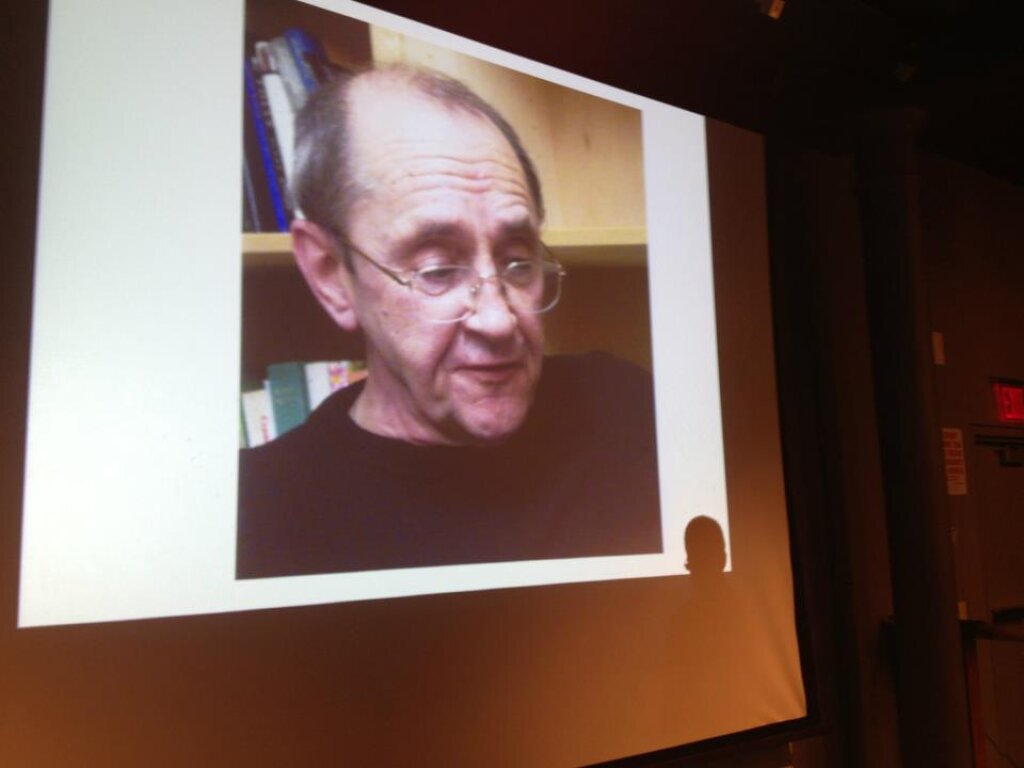On October 14th, Professors Korey Garibaldi and Emily Wang, both of Notre Dame, joined the Jordan Center to speak about their collaborative work on race and literature in talk entitled “Interrogating the Declining Significance of Pushkin’s Blackness: Henry James, Ivan Turgenev, and Literary Nationalism.”
The two began with a history of Pushkin’s African ancestry and its effect on his life. His great-grandfather, Abram Petrovich Gannibal, was an African who was enslaved as a boy. He was then presented as a gift to Peter the Great, who later freed him and granted him noble status. Pushkin, Wang pointed out, was proud of his heritage and embraced his racialization.
Garibaldi explored the connection between Pushkin and American writer Henry James. James was a 2nd-generation Irish-American whose grandfather had accumulated a large fortune. He felt a great affinity with African Americans and the struggles they faced. Garibaldi argued that the pervasive anti-Irish sentiment of early 19t- century America and Britain can help explain the solidarity of the James family—including two of the writer’s younger brothers who volunteered to fight in Black Union regiments during the Civil War—with African Americans.
The German and Irish millions, like the Negro, have a great deal of guano in their destiny. - Ralph Waldo Emerson
During the 1830s, 40s, and 50s, Pushkin’s Blackness and African ancestry was central to discussions of the Russian writer in Western publications:
Both Dumas and Pushkin were only one-fourth Negro. I attribute their proficiency in letters exclusively to their three-fourths Caucasian blood, and had they been full-blooded Caucasian, I have no doubt that they would have become more proficient.” - Letter to the Editor of the Morning Courier, a Louisville newspaper
In Russia the Turgenevs, Garibaldi said, developed a parallel reputation as a family of anti-serfdom intellectuals. Russian intellectuals recognized and discussed the similarities between American slavery and Russian serfdom.
About the fate of the Greeks one is permitted to reason, just as the fate of my brothers the Negroes - one may wish both groups freedom from unendurable slavery. – Pushkin, Letter 73 to Peter Andreevich Vyazemsky
The three writers—Henry James, Alexander Pushkin, and Ivan Turgenev—developed bodies of work that explored or alluded to the racial undertones that influenced their conversations and lives, including James’ The Aspern Papers, Pushkin’s Queen of Spades, and Turgenev’s Hunter’s Sketches.
Why, then, even though James claimed an explicit influence from Lord Byron, did he neglect to mention the obvious influence of Pushkin? Wang and Garibaldi posited that Pushkin’s racial ambiguity—that is, his African ancestry--may have caused the writer’s hesitance in an era of intensifying scientific racism. Scholarship that examines the connections between Pushkin and James has also neglected Pushkin’s ancestry.
Garibaldi pointed out that the protagonist of James’ early novel The Europeans seems to be modeled after Pushkin’s youngest daughter, Natalia. James published the novel shortly after meeting Turgenev in Paris. James considered Hunter’s Sketches a parallel to Uncle Tom’s Cabin and a major contribution to the struggle against serfdom. Garibaldi argued that given their friendship and shared interest in race, it is very likely that the two writers discussed Pushkin.
The novel takes place in an early 19th-century Boston community modeled after Cambridge, well known for its abolitionism. The protagonist, Eugenia Munster, is a European-raised, racially ambiguous woman visiting her wealthy American relatives. She and her brother are treated as outsiders and given a small cabin on the family’s large estate.
Garibaldi explained that James took inspiration from women he perceived to be mixed race, including Queen Charlotte and the aforementioned Natalia Pushkina. During Pushkina’s time, her beauty was often attributed to her father rather than, as tradition would typically dictate, her mother.
A second similarity exists between James’ The Aspern Papers and Pushkina’s decision to sell her parents’ love letters to Ivan Turgenev, who then published them in 1877. Pushkina’s personal life included major scandals like divorce, and her African heritage, Garibaldi explained, emerged as a liability.
At the beginning of Pushkin’s career, the Romantic appeal of his African-ness had been a boon to his career, but negative stereotypes, such as a supposed tendency to infidelity that racists could attribute to his African ancestry, came to plague him. These negative perceptions likewise impacted his descendants, including Natalia.
With the rise of scientific racism later in the 19th century, Pushkin’s Blackness began to disappear from discussions of the writer. Dostoevsky’s speech erased his heritage from the narrative, and as the divide between Europe and Asia began to emerge, intellectuals attempted to place Gannibal’s roots in Northern African to establish him and his descendants as a “higher,” non-Black race.
Headlines discussing the marriage of Pushkin’s granddaughter into the Russian royal family included:
“Negro Blood In the Royal Court” (The Norfolk Virginian)
“Duke Michael and His Negro Wife Admitted to Court” (The Richmond Item)
During the Q&A, Wang expanded upon the connections between Pushkin’s Blackness and his opinion of serfdom. She explained that Pushkin associated his African heritage with the plight of the serfs, though he considered Russian serfdom as less terrible than either American slavery or British industrial work.
Both speakers addressed how their work can contribute to anti-racism in the US and Russia. Wang stressed the importance of bringing together diverse intellectuals—Russian Pushkinists, American Pushkinists, Russian Americanists, African Americanists, and so on. Garibaldi suggested that Pushkin, who represents so many things, is a great figure around whom to build a common literature and a discourse capable of challenging white supremacist assumptions about the creators of great and important culture.



